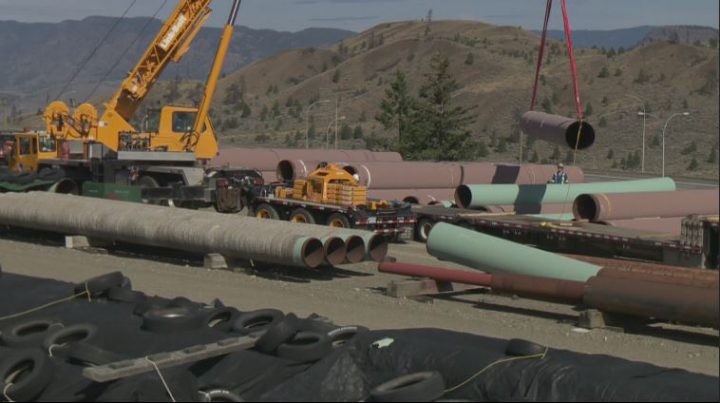The Saskatchewan government says it will be intervening to support the federal government’s argument that the Trans Mountain pipeline expansion was properly approved.

The province announced Monday afternoon it has been granted leave to intervene in the hearing before the Federal Court of Appeal. The court will hear arguments on whether the Canadian government adequately consulted with First Nations.
“Saskatchewan will make submissions to the Federal Court of Appeal on the need to fairly balance the duty to consult with other matters of public interest, such as transportation infrastructure,” Justice Minister Don Morgan said in a press release.
“Projects like Trans Mountain create a stronger economy that allow the federal and provincial governments to invest in programs and initiatives like health and education.”
The Saskatchewan government said the proposed $9.3-billion project would increase capacity from 300,000 barrels per day to 890,000 barrels per day, providing significant benefit to oil producers in landlocked provinces.
- RCMP investigating discovery of human remains southwest of Calgary
- Calgary Flames forward Jonathan Huberdeau to have season-ending hip surgery
- Calgary jewelry store owner loses fortune in gold to late night smash-and-grab
- Motherhood, family bring new perspective to Games for 3-time Canadian Olympian
A lack of access to tidewater cost Saskatchewan producers roughly $3.7 billion in lost revenue in 2018, according to the provincial government.

Get breaking National news
Without new pipeline capacity, the provincial government said demand for rail transportation will continue to increase, putting pressures onto oil producers as well as other industries, such as agriculture and mining.

Saskatchewan Energy and Resources Minister Bronwyn Eyre spoke Monday on the importance of the project and the opportunities for greater participation from Indigenous communities on natural resource projects.
“The Trans Mountain pipeline expansion project is in the interest of all Canadians,” she said in a keynote speech to the National Coalition of Chiefs Energy and Natural Resources Summit in Calgary.
“Energy projects, including pipeline projects, are a source of prosperity. Our government continues to advocate for vital energy infrastructure, which supports national unity and enhances the Saskatchewan and Canadian economy.”
The court is scheduled to hear arguments in December.






Comments